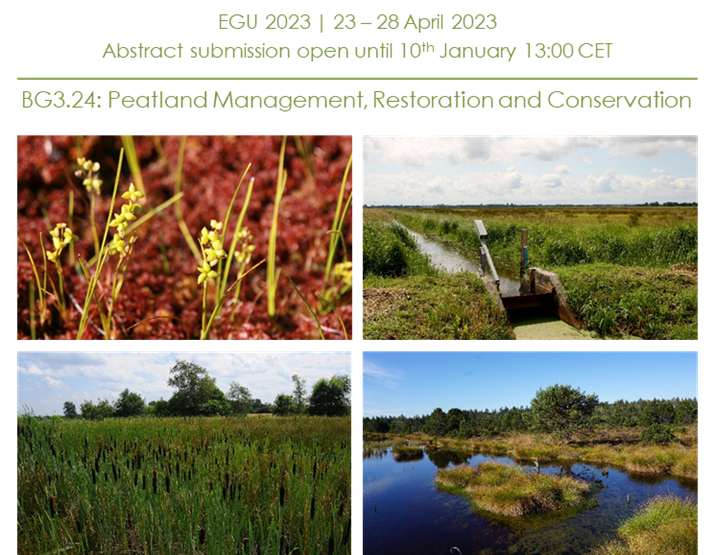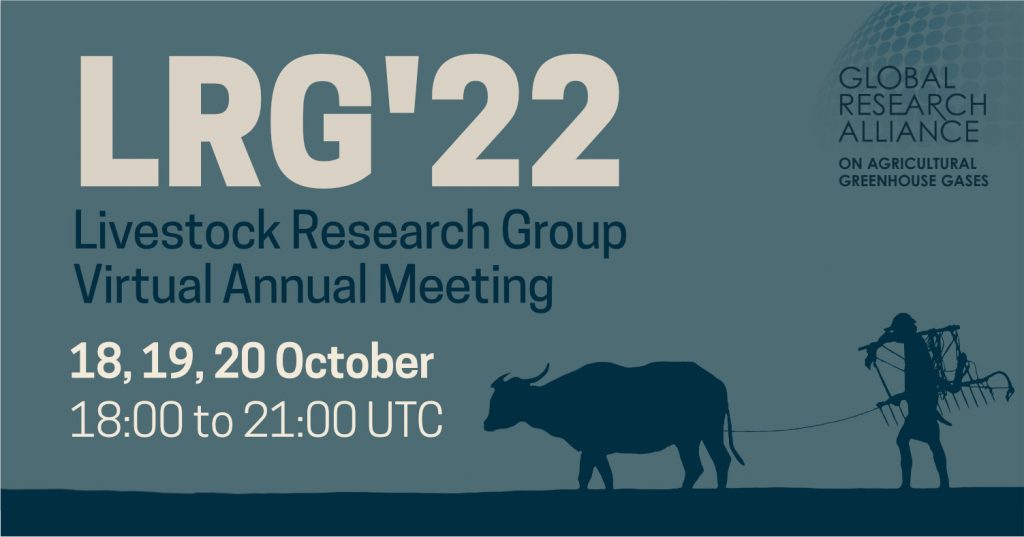Deadline: 22 January 2023
CCAC is looking for a “CCAC Agriculture Expert” to provide full-time support to help drive action in the agriculture sector and ensure a well-functioning and strategic CCAC Agriculture Hub. S/he will provide direct support to national governments and CCAC National Consultants; provide technical reviews of funding proposals related to the sector; provide support for technology assessments and advise on new business models; provide support for policy and regulatory development; engage key organizations to expand the sectoral network; deliver various activities as set out in the Work Plan and Budget; and contribute to internal coordination within the CCAC Secretariat.
Please disseminate broadly with your extended network. To learn more visit: https://careers.un.org/lbw/jobdetail.aspx?id=198029&Lang=en-US&R6wF9AvbqY=7CF02EF98284A4DFCBA238EF2EFD7761
Kind regards, The Secretariat

Closing date: 26 January 2023
Location: Department of Animal Production and Food Sciences, University of Zaragoza, Spain
The Veterinary Faculty of Zaragoza (Spain) is seeking potential applicants for a pre-doctoral research contract.
The work will focus on developing nutritional strategies based on the use of feed additives (i.e. plant extracts, fatty acids, Immunoglobulins, immuno-modulators, etc.) to optimize the weaning process in ruminants and pigs. This work will imply in vitro and in vivo experiments to determine the effects of these nutritional strategies on the gut microbiota, health and animal performance.
Details of the call are described in the document below:
Closing date: 20 January 2023
Location: Ireland
Teagasc are currently seeking a postdoctoral fellow to work on modelling the impact of farm management on ecosystem carbon flows and changes in soil organic carbon (SOC). The successful applicant will join a very well resourced team of researchers and technical staff working on the national agricultural soil carbon observatory.
For further information about the role and how to apply, click HERE.
On 29 November 2022, a 3 hour G7 online workshop was held on the topic of “Carbon sequestration in agriculture – opportunities and challenges”. Further information and the workshop report can be found HERE.
Closing date: 14 February 2023, 17:00 (NZDT)
Background
The global dairy sector through its “net zero” ambitions is actively pursuing research and grass roots practice change to achieve the required mitigation outcomes. A large number of major dairy organisations are proactively quantifying their value chain emissions to better understand the greatest mitigation opportunities and how best to action these. There are many mitigation ‘levers’, possible, though incorporating the outcomes of the implementation of these in carbon footprint calculations is currently extremely challenging.
Although there are established protocols for calculating the carbon footprint of dairy production, there are two main gaps limiting progress:
- The scientific standards required to provide the evidence on efficacy and associated claims for new technologies (e.g. how much evidence is required before a mitigation lever is ‘scientifically’ considered to result in a reduction on the carbon footprint and how much reduction can be claimed on the basis of the available evidence).
- How the implementation of these and associated impact can be included and reflected in carbon footprint calculations
Objective of this RfP
The dairy industry wants to drive and promote the implementation of these new technologies and wants to ensure that accounting of any reductions is undertaken in a robust and responsible way. One of emerging and most promising mitigation levers to reduce the carbon footprint of dairy production are methane inhibitors. Although methane inhibitory products are available in the marketplace and many on farm trials are being undertaken, very few dairy companies are including the associated emissions reductions in on-farm carbon footprint calculations as the process for doing this in a robust manner has not yet been established.
It is a critical time for the ruminant sector in the climate dialogues and it is important that technologies that are part of the emissions mitigation toolbox are used responsibly at the earliest opportunity. As a result, the following organisations have pooled resources and will collaborate with the aim of solving this challenge:
- Arla Foods
- Danone
- Fonterra
- FrieslandCampina
- Nestle
- New Zealand Agricultural Greenhouse Gas Research Centre
This project seeks to develop a protocol that will be generally applicable for all on-farm mitigation technologies, though will initially be tested on methane inhibitors as this is currently highly relevant in relation to the net zero ambition.
This project will be conducted in close collaboration with and has the aim of building on the Global Research Alliance Flagship Project: Feed Additives to Reduce Methane, that aims to facilitate the development and use of feed additives to reduce enteric methane emissions in the livestock sector by providing technical guidelines and protocols on good practices to test and develop feed additives of different nature, including the assessment of how to account for the benefit of using feed additives as a mitigation strategy.
For further information about this Request for Proposal, please download the RfP document below.
All communication regarding this RfP should be directed to Brian Lindsay at [email protected]
Deadline: Tuesday 10 January 2023 13:00 CET

EGU 2023 is approaching and you are invited to submit your work on peatlands to the session BG 3.24 “Peatland management, restoration and conservation”.
https://meetingorganizer.copernicus.org/egu23/session/44978
Deadline for submission is Tuesday 10 Jan 2023 13:00 CET and you’ll find instructions for submission here:
The December 2022 Animal Health Network (AHN) Newsletter is now available!
In this edition you can find information about the role of animal health in reducing GHG emissions, recent meetings and workshops, a COST proposal that the Network is putting together, recent publications and more!
You can read the newsletter HERE or via the link below.
The FAO elearning Academy has released a NEW online course on “Estimating methane emissions from enteric fermentation using Tier 2 method”. The course is free of charge and aims to provide practical guidance for data collection and emissions estimation from livestock enteric fermentation, using the Intergovernmental Panel on Climate Change (IPCC)’s Tier 2 method.
Learn more here: https://elearning.fao.org/course/view.php?id=893
Closing date: 20 December 2022
Location: Ouagadougou, Burkina Faso
The West African Science Service Centre on Climate Change and Adapted Land Use (WASCAL) seeks to recruit a Post-Doctoral Scientist as Social Learning and Implementation Facilitator at its Competence Centre in Ouagadougou, Burkina Faso. The candidate will be required to service WASCAL by providing support to the project INTERFACES (Supporting Pathways to Sustainable Land Management in Africa), funded by the German Federal Ministry of Education and Research BMBF under the guidance of the local project coordination team at WASCAL.
The project supports and coordinates outreach activities for four Research and Development (R&D) projects working on sustainable land management in Sub-Sahara Africa funded under the umbrella of
BMBF’s Strategy, “Research for Sustainability”. INTERFACES will support collective processes, that enable and contribute to gender-responsive transformative change between all relevant stakeholders, such as the R&D projects, other scientists, policy-makers, and practitioners in Africa. The position is responsible to engage with the relevant stakeholders in Africa in collective and social learning processes and contribute to the implementation of research results. It involves a strong cooperation with the partners of INTERFACES and the other R&D projects.
The chosen candidate will work with a multidisciplinary team of experts from different African and German institutions to produce and disseminate the results of the INTERFACES project to all stakeholders in Africa.
For further information, click HERE.
The 2022 meeting of the Livestock Research Group was held over three online sessions on 18 – 20 October.
The meeting was attended by participants from 38 countries and five partner organisations. The meeting report and recordings of the online sessions are now available for download HERE.

Closing date: 12 December 2022
Location: University of Eldoret (Kenya)
The University of Eldoret (Kenya) is offering three doctoral research fellowships. The fellowships are attached to an international project which aims to improve the design and management of rural water pans, to increase the sustainability, climate resilience and quality of water supplied to rural communities in Tanzania and Kenya. In keeping with the project’s focus, the doctoral candidates are expected to conduct research and engage in knowledge sharing and joint learning with communities and decision makers at the national and regional levels in Africa.
Learn more about the positions and how to apply HERE.

Closing date: 4 December 2022
Location: Palmerston North, New Zealand
AgResearch is offering an exciting opportunity to join their world-leading, award-winning Rumen Microbiology team as a Senior Scientist, and help their research on reducing biogenic greenhouse gas emissions in climate change mitigation. Learn more & apply HERE.
